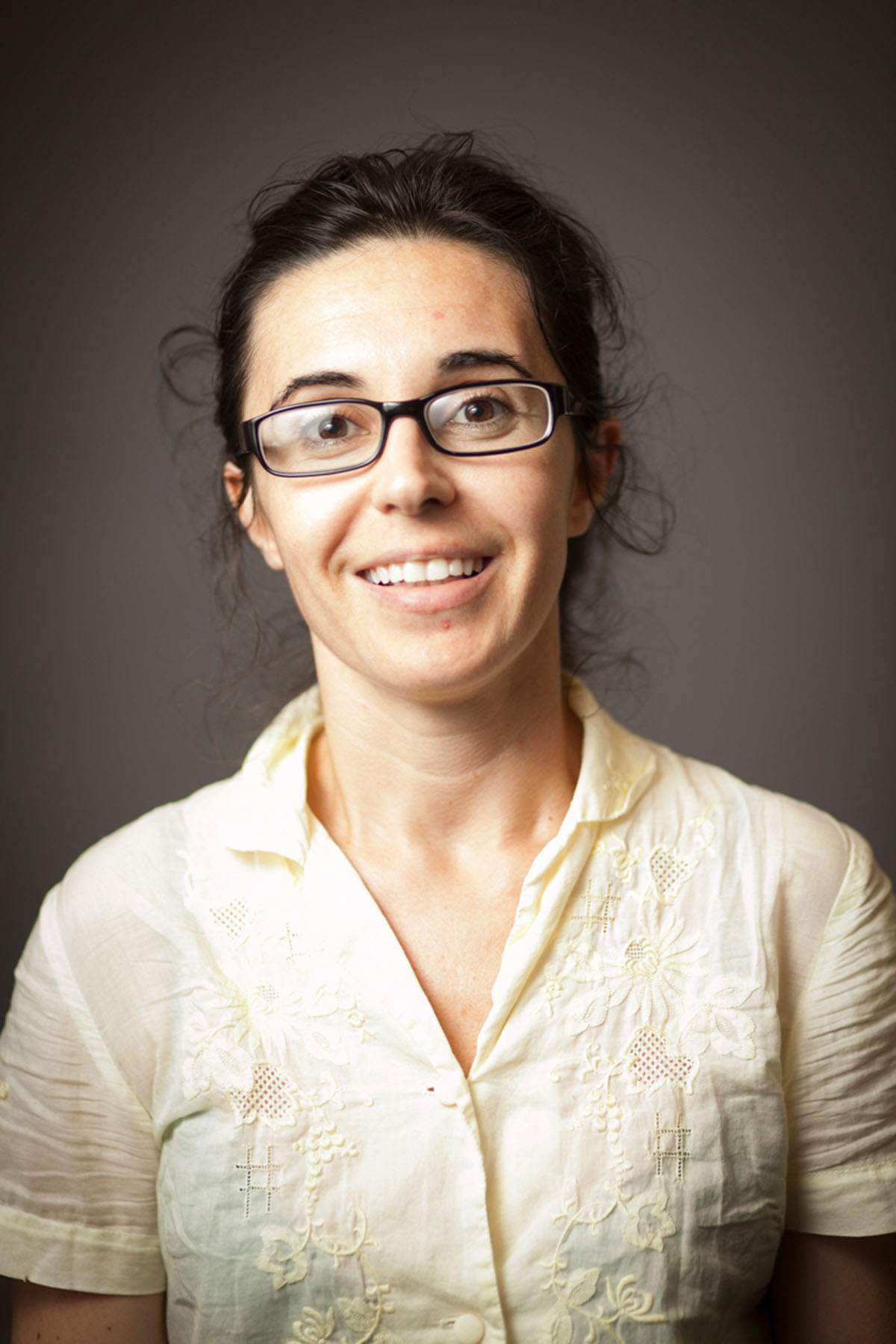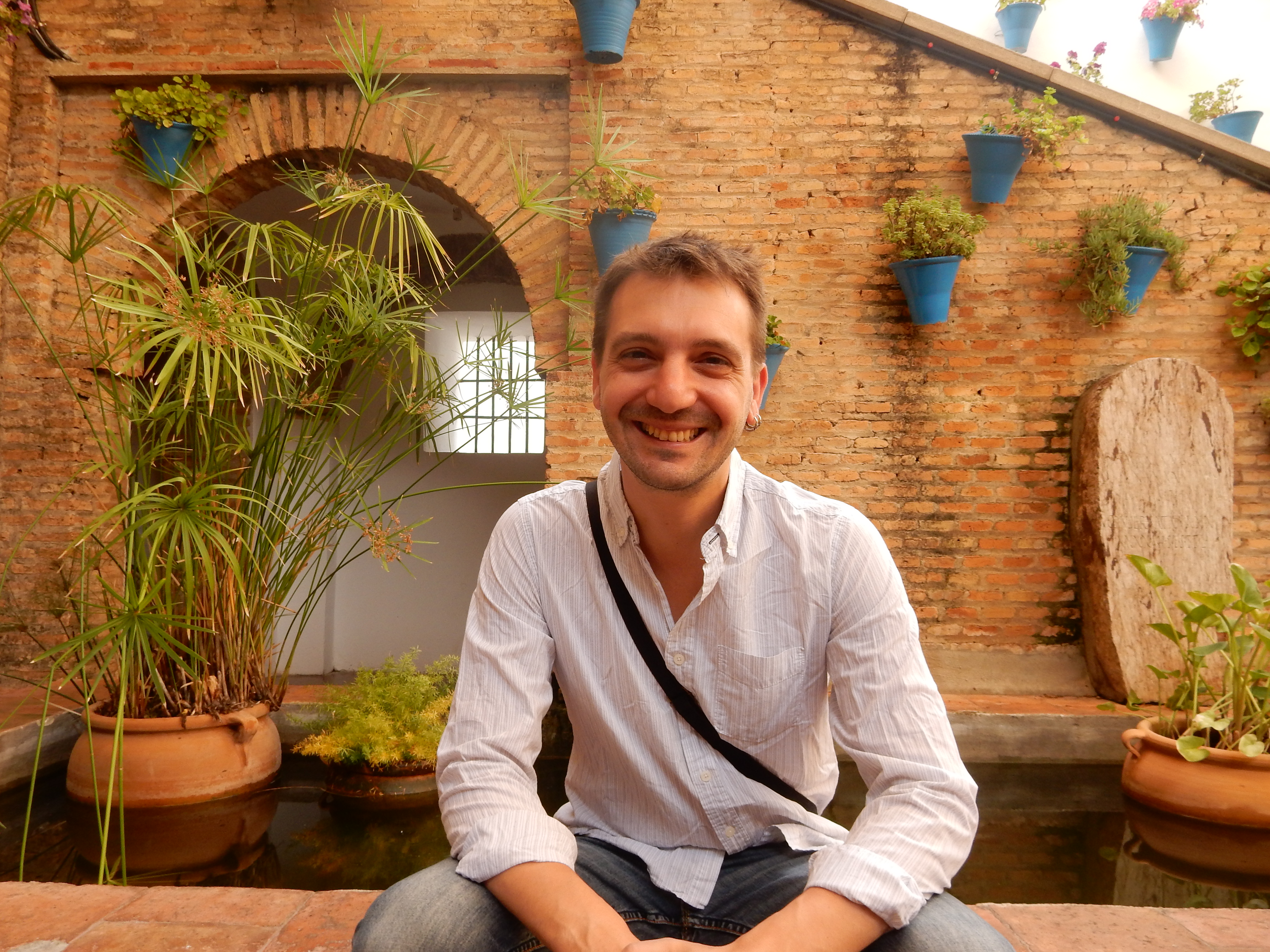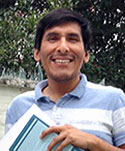
Scholar-Partners

Margaret Boyle
Margaret Boyle is an Associate Professor of Hispanic Studies at Bowdoin College. Her primary teaching and research interests include early modern women's literary and cultural history, comedia and performance, and practices of early modern health and healing. She is the author of Unruly Women: Performance, Penitence and Punishment in Early Modern Spain (University of Toronto Press, 2014), winner of the Vern Williamsen Comedia Book Prize and Honorable Mention from the Society for the Study of Early Modern Women. For 2019-2020, she has been awarded the Howard Foundation Fellowship for literary studies and will be in residence in Spain at the López Piñero Institute for the History of Science and Medicine as a Fulbright Senior U.S. Scholar. She is co-editor with Sarah Owens of a forthcoming volume Health and Healing in the Early Modern Iberian World: A Gendered Perspective.

Bruce R. Burningham
Bruce R. Burningham is Professor of Hispanic Studies and Theatre at Illinois State University, where he currently serves as Chair of the Department of Languages, Literatures, and Cultures. He specializes in medieval and early modern Spanish and Latin American literature, Hispanic theater, and performance theory. He is the author of Tilting Cervantes: Baroque Reflections on Postmodern Culture (Vanderbilt UP, 2008) and Radical Theatricality: Jongleuresque Performance on the Early Spanish Stage (Purdue UP, 2007). He is Editor of Cervantes, the journal of the Cervantes Society of America, and he serves on the Board of Directors of the Association for Hispanic Classical Theater. His directing credits include Griselda Gambaro’s The Walls and Calderón de la Barca’s Great Stage of the World. His acting credits include the role of “Mario” in Antonio Skármeta’s Burning Patience. He is also a recipient of an Andrew W. Mellon Postdoctoral Fellowship and a National Endowment for the Humanities grant.

María del Pilar Chouza-Calo
Dr. María del Pilar Chouza-Calo is an Associate Professor of Spanish at Central Michigan University. Her main research areas include Early Modern Spanish literature and culture, Golden Age Spanish theater and the culture of the Counter-Reformation, Lope de Vega studies, and love theory. Her publications include contributions in the books El Siglo de Oro antes y después del Arte nuevo: Nuevos enfoques desde una perspectiva pluridisciplinaria (2009), Pictavia aurea (2013), La violencia en el teatro de Calderón (2014), including translations in the books Literatura y feminismo en España (s. XV–XXI) (2005), and in Cervantes and Don Quixote (2008), as well as articles in the peer-reviewed journals such as eHumanista: Journal of Iberian Studies, and Hispania Félix: Revista hispano-rumana de cultura y civilización de los Siglos de Oro.A critical and annotated edition of Lope de Vega’s play entitled Querer la propia desdicha (Gredos) is forthcoming in 2016.

Julia Domínguez
Julia Domínguez is an Associate Professor of Spanish at Iowa State University. She received dual B.A.s in Hispanic Philology & Linguistics and English Philology & Linguistics from the Universidad de Extremadura (1998), a Masters degree in Hispanic Studies from Michigan State University (2000), and her Ph.D. in Hispanic Studies from the University of Arizona (2004). She has published on Cervantes, the picaresque, and film in the Bulletin of Comediantes, Hispania, Cervantes and Revista de Estudios Hispánicos, among others. She is the editor of a collection of essays titled Cervantes in Perspective (Iberoamericana Vervuert, 2013) and the co-editor of Hispanic Studies in Honor of Robert L. Fiore (Juan de la Cuesta, 2009). She is currently working on a book manuscript tentatively entitled Storying Memories in Don Quixote: Cervantes and Memory in Early Modern Spain.

Esther Fernández
Esther Fernández is Assistant Professor at Rice University. She is the author of Eros en escena: Erotismo en el teatro del Siglo de Oro (2009), editor of Don Gil de las calzas verdes (2013), co-editor of El perro del hortelano (2011) and co-editor of Diálogos en las tablas: Últimas tendencias de la puesta en escena del teatro clásico español (2014). Dr. Fernández’ s research interests have principally attended to eroticism and the Spanish comedia; visual and material culture; and performance analysis of classical theater’s most contemporary adaptations.
Dr. Fernández’s current work includes editing a volume that explores Anglo-Spanish relations vis-a-vis the contentious image of Elizabeth I in Early Modern Spain, as well as a monograph on the ritualized figure of ‘the puppet,’ in ceremonial and theatrical contexts, which served to materialize representations of religious and ‘non-religious’ worlds across pre-modern Iberia.

Susan L. Fischer
Susan L. Fischer is emerita professor of Spanish and Comparative Literature at Bucknell University and currently an Associate of the Department of Romance Languages and Literatures at Harvard University. A specialist in early modern theater, she is the author of Reading Performance: Spanish Golden Age Theatre and Shakespeare on the Modern Stage (2009), as well as myriad studies on Lope de Vega, Tirso de Molina, Calderón de la Barca, and Shakespeare, focusing primarily on (post)modern stagings of their plays in Spain, England, and France. She is also editor of, and co-contributor to, two volumes: Comedias del siglo de oro and Shakespeare (1989), and Self-Conscious Art: A Tribute to John W. Kronik (1996); co-editor of, and co-contributor to, a third collection, Women Warriors in Early Modern Spain: Essays in Honor of Bárbara Mujica (2019); guest co-editor of special issue 37 (2024) of the journal, Teatro. Revista de Estudios Escénicos / A Journal of Theater Studies (“Theatre’s Method: Readers, Directors, Actors, Critics”); and editor-in-chief of the psychology journal, Gestalt Review, published by The Pennsylvania State University Press. A Festschrift—Shakespeare and the Spanish Comedia: Translation, Interpretation, Performance. Essays in Honor of Susan L. Fischer—appeared in 2013.

Enrique García Santo-Tomás
Enrique García Santo-Tomás is the Frank P. Casa Collegiate Professor of Spanish at the University of Michigan, and former Senior Fellow at the Michigan Society of Fellows (2011-2015). He is the author of La creación del ‘Fénix’: recepción crítica y formación canónica del teatro de Lope de Vega (2000), recipient of the ‘Premio Moratín de Ensayo a la Investigación Teatral’ (2001); Espacio urbano y creación literaria en el Madrid de Felipe IV (2004), winner of the ‘Premio Villa de Madrid / Premio de Investigación Municipal Antonio Maura’ (2005); Modernidad bajo sospecha: Salas Barbadillo y la cultura material del siglo XVII (2008); and La musa refractada: literatura y óptica en la España del Barroco (2014, 2015; forthcoming in English with The University of Chicago Press). He is currently at work on a monograph titled Vital Signs: Midwifing Fiction in Spain, 1540-1690, and on an edited collection called Theater by Numbers: Science on the Stage in Early Modern Spain forthcoming with the University of Toronto Press.

Chad M. Gasta
Chad M. Gasta (Ph. D., Michigan State University) is Professor of Spanish and Chair of the Department of World Languages and Cultures. He also serves as Director of International Studies and Co-Director of the Languages and Cultures for Professions program. Gasta co-directs Iowa State’s largest study abroad program, the ISU on Mediterranean – Summer in Valencia, Spain, which features coursework in Spanish, engineering, business, and biology. Gasta’s research and speaking engagements feature transatlantic approaches to early modern literature, culture, and history of Spain and the New World, early opera and musical culture in Spain and the New World, Cervantes, the picaresque, and global education and international engagement including study abroad. He is the author of Imperial Stagings: Empire and Ideology in Transatlantic Theater of Early Modern Spain and the New World (UNC Press, 2013), Transatlantic Arias: Early Opera in Spain and the New World (Iberoamericana/Vervuert, 2013), and an annotated critical edition of Lazarillo de Tormes (Waveland, 2013).

Javier Irigoyen-García
Javier Irigoyen-García is Associate Professor at the Department of Spanish and Portuguese, University of Illinois at Urbana-Champaign. His research focuses on the representation of race, ethnicity, and class difference in early modern Spain. He has published The Spanish Arcadia: Sheep Herding, Pastoral Discourse, and Ethnicity in Early Modern Spain (University of Toronto Press, 2013). His second book,“Moors Dressed as Moors”: Clothing, Social Distinction, and Ethnicity in Early Modern Iberia (University of Toronto Press, forthcoming) studies the production, circulation, and consumption of Moorish clothing among both Old Christians and Moriscos to show that it was a sign of status which conditioned sartorial practices, discourses on social preeminence, and literary representations.

Natalio Ohanna
Dr. Natalio Ohanna is Associate Professor of Spanish at Western Michigan University. He specializes in Spanish Golden Age and Spanish American colonial literatures, with a focus on the intellectual history of the Early Modern period, the cultural triangle of Europe, Africa and the Americas in struggle and exchange, and the social and political meanings of cross-cultural theatre and narrative of travel and captivity. Professor Ohanna is the author of Cautiverio y convivencia en la edad de Cervantes (Centro de Estudios Cervantinos, 2011), and he recently completed the first critical edition of Los cautivos de Argel `{`The Captives of Algiers`}` by Félix Lope de Vega (Castalia 2017), which is part of a broader project on the construction of social marginality in Spanish Golden Age drama.

Fernando Rodríguez-Mansilla
Fernando Rodríguez-Mansilla (Ph.D. in Spanish Philology, Universidad de Navarra, Spain) is Assistant Professor of Spanish and Hispanic Studies at Hobart and William Smith Colleges, in Geneva, New Work. His publications include Picaresca femenina de Alonso de Castillo Solorzano (Madrid-Frankfurt am Main: Iberoamericana-Vervuert, 2012), Gabinete veneciano (Madrid: Mirada Malva, 2011), Guia de lectura del ``Lazarillo de Tormes`` (Pamplona: Cenlit, 2010), and Guia de lectura de ``Los cachorros`` de Mario Vargas Llosa (Pamplona: Cenlit, 2008). Throughout his research and teaching, Dr. Rodríguez-Mansilla introduces cultural interpretative approaches of literature, while providing a strong philological reading of the texts. He is particularly attracted by topics such as the picaresque world and germania, the narrative devices of the Golden Age fiction, the literary academies, and the novella cortesana. In addition, he has broadened his studies by exploring transatlantic connections through the representation of Golden Age Spain and the Colonial Period in contemporary Hispanic literature. In a few words, he has made Early Modern Spain the starting point of his research, stressing the relevance of this literary and historical period as the base of a modern Hispanic culture.

Ana M. Rodríguez-Rodríguez
Ana M. Rodríguez-Rodríguez is an Associate Professor at the University of Iowa specializing in Early Modern Spanish Literature. She has published articles on Christian-Muslim relations during the 16th and 17th centuries, and a book exploring Spanish textual manifestations of the phenomenon of captivity during this period (Letras liberadas. Cautiverio, escritura y subjetividad en el Mediterráneo de la época imperial española. Madrid: Visor Libros, 2013). She is currently writing a book on the Spanish presence in the Philippines during the first centuries of Spain's colonial rule of the archipelago, and preparing a critical edition of the Libro de cassos impensados, by Alonso de Salamanca.

Daphnie Sicre
Daphnie Sicre, PhD. (she/ella) is a multi-hyphenated theatre artist. She teaches Theatre History and Latine Theatre at UC Riverside. Raised in Madrid, Spain, but born in Guayaquil, Ecuador to Peruvian and Spanish parents, Sicre shares a deep passion for discovering multiple Latinx and Black perspectives in theatre, especially AfroLatinidad. As a director / dramaturg / scholar / educator engaging in anti-racist and culturally competent theatre practices, she helps bring stories from the page to the stage. She was recently named Co-Artistic Director of Ammunition Theatre in Los Angeles, and she co-directs the Candela Fellowship for Latine and Caribbean Playwrights with the Dramatists Guild. She has extensive experience as a director and dramaturg for East West Players, LATC, Playwrights' Arena, the Robey Theatre, Lehigh University, NYU, Columbia, and many more. Her latest publication is a book chapter on AfroLatinidad in The Routledge Companion to Latine Theatre and Performance. Other publications include articles in Theatre Symposium: Theatre and Race and Theatre, Dance and Performance Training; and book chapters in Contemporary Black Theatre and Performance: Acts of Rebellion, Activism, and Solidarity; Stages of Reckoning: Antiracist and Decolonial Actor Training; Shakespeare and Latinidad, and more. She also recently started writing back for HowlRound, and led a series with AfroLatine playwrights.

Gabriela Villanueva Noriega
Gabriela Villanueva Noriega (Ph.D. 2015, el Colegio de México) is professor of Modern Languages at the National Autonomous University of Mexico (UNAM) where she teaches courses on modern poetry, theatre, and early modern literature in both English and Spanish. Her research centers on comparative and transnational approaches to the study of the Anglo-Hispanic connections and how they frame instances of interaction between cultures through time. She is currently working on a book project on the literary transactions between Spain and England during the seventeenth century and how “wit” (ingenio) comes into play with politics, religion, nationality, and modernity. She has published articles on picaresque fiction, Cervantes, Milton, Cavendish, amongst other topics. Recent publications include a translation of Mary Wollstonecraft’s letters (UNAM, 2024); “Tejer la nueva ciencia con los materiales de la imaginación: Margaret Cavendish, poesía y experimentación”, Acta poética (2023); and “How Milton’s Fallen Angels Landed in Nineteenth Century Mexico,” in Global Milton and Visual Art (2021), ed. Angelica Duran and Mario Murgia. Since 2024, she has coordinated the Early Modern Performance Studies Research Seminar alongside teachers, students, and theater practitioners in Mexico interested in exploring performing arts practices in Early Modern Hispanic and English drama. She collaborates with Diversifying the Classics through the Mex-Clásicos initiative.

